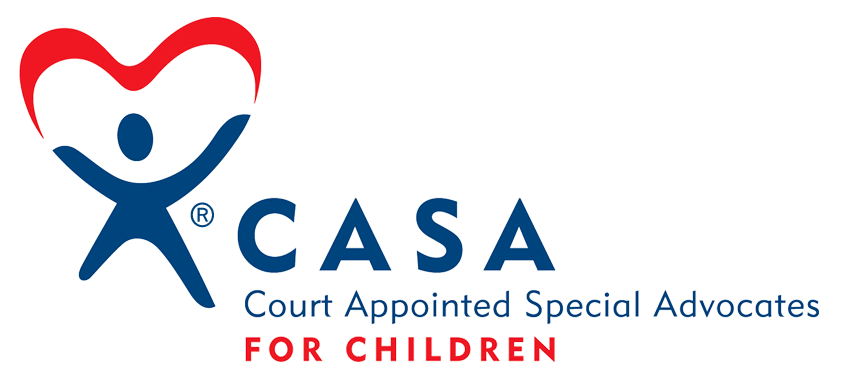In Delaware County, more than 400 children have been placed in foster care because of their parents’ addiction. As a result of this crisis we need 200 more volunteers to be Court Advocates or Child Home and School Visitors.
Opioid Addiction and Death on the Rise
According to the National Safety Council, “60 people die everyday from opioid pain medications. That’s 22,000 people every year.”
The NSC says opioids are being overprescribed and the #1 cause of unintentional death in the United States. Adults have been prescribed opioids by doctors and subsequently become addicted or move from pills to heroin. Perhaps even more alarming: 70% of people who have abused prescription painkillers reported getting them from friends or relatives. Most people don’t know that sharing opioids is a felony.
“People who take opioid painkillers for too long and in doses too large are more at risk of addiction and more likely to die of drug poisoning. The numbers are staggering. In a 2016 National Survey on Drug Use and Health report regarding illict drug use:
 “In 2016, 28.6 million people aged 12 or older used an illicit drug in the past 30 days, which corresponds to about 1 in 10 Americans overall (10.6 percent) but ranges as high as 1 in 4 for young adults aged 18 to 25. Regardless of age, the illicit drug use estimate for 2016 continues to be driven primarily by marijuana use and the misuse of prescription pain relievers. Among people aged 12 or older, 24.0 million were current marijuana users and 3.3 million were current misusers of prescription pain relievers. Smaller numbers of people were current users of cocaine, hallucinogens, methamphetamine, inhalants, or heroin or were current misusers of prescription tranquilizers, stimulants, or sedatives.” National Survey on Drug Use and Health
“In 2016, 28.6 million people aged 12 or older used an illicit drug in the past 30 days, which corresponds to about 1 in 10 Americans overall (10.6 percent) but ranges as high as 1 in 4 for young adults aged 18 to 25. Regardless of age, the illicit drug use estimate for 2016 continues to be driven primarily by marijuana use and the misuse of prescription pain relievers. Among people aged 12 or older, 24.0 million were current marijuana users and 3.3 million were current misusers of prescription pain relievers. Smaller numbers of people were current users of cocaine, hallucinogens, methamphetamine, inhalants, or heroin or were current misusers of prescription tranquilizers, stimulants, or sedatives.” National Survey on Drug Use and Health
The National Safety Council advises that opioids are not necessarily the best way to treat pain. Non-addictive medicines are just as effective, including many over-the-counter drugs such as ibuprofen or naproxen.
Effect of Substance Abuse on Children
When parents or other family members abuse drugs or alcohol their children often suffer the effects. Home life can become chaotic and the children’s basic needs are neglected. Children can be exposed to violence, abuse, neglect, financial problems and even malnourishment at a young age if family members are addicted to drugs or alcohol.
Unpredictability and Substance Abuse
When an adult is addicted to alcohol or other substance, they will struggle to control their behavior, mood and even actions. For a child, this can be very confusing to have a parent or other family member going through unpredictable mood swings, bouts of violence or depression and even times of abandonment for the sake of being high or being drunk. Children become anxious and often blame themselves for their parent actions. This can have a devastating affect on a child as they develop. They may become fearful, frightened, violent, depressed or anxious from a young age as a way of coping with the unpredictable nature of their family member.
When family members take drugs:
- Children can’t count on them to do what they say they will do.
- They may forget to keep food in their homes or feed their children.
- They might lie or steal money to buy drugs.
- They might get fired from their jobs.
- They might not come home at night.
Family members might fight a lot because of the problems the drug use is causing. The person who is using drugs might do and say things that upset neighbors and friends, and make the family ashamed. As a child gets older, they can begin to distance themselves from friends because they are scared that people may judge them on their parent or family members behavior. Children seldom invite friends over and avoid going to events where a parent might have to go or even lie to friends about a family member being sick or absent. The family can become a guilty secret for a child and they may not talk to anyone about their parent’s substance abuse for fear of people’s reactions. Feeling ashamed and blaming themselves will often lead to physical, intellectual, social, and emotional problems. For information about the trauma in children we recommend “Understanding Trauma“.
[/vc_column_text][/vc_column][/vc_row]